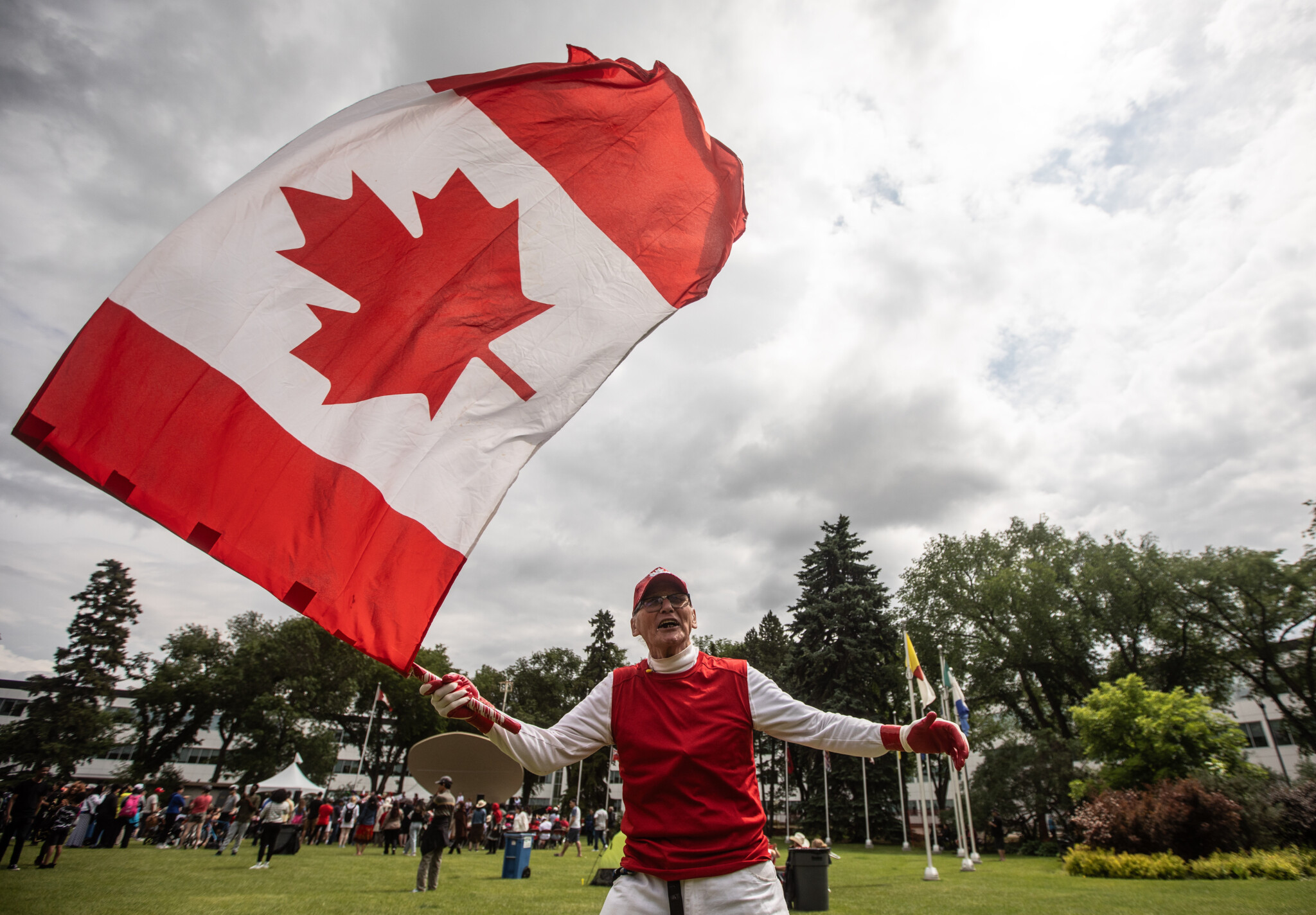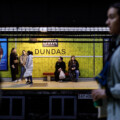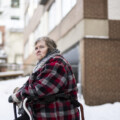In a recent episode of “In Conversation with David Frum,” Frum and The Hub’s editor-at-large Sean Speer discussed the need for Canadian national unity and why Canada, despite its failings, is a country with a rich history to be proud of and thankful for.
They also discussed potential new legislation brought forward by an NDP MP that would criminalize dissenting views on residential schools in Canada and explored the interrelationship between that issue and the attacks of October 7th.
Five key takeaways from that conversation are set out below. The following has been edited and condensed for clarity.
1. We need more pride in Canada, not less
“At different times, [Canadians] need different lessons. And there may have been moments in the Canadian past where less self-congratulation was called for. More facing of the dark passages [of our history] was called for. But there’s a moment—and it’s now—when more pride is called for. More awareness of what was achieved is called for. Less denigration of the people who built the country you enjoy. And when you’re toppling statues of the country’s first prime minister, without whom there wouldn’t be a country at all, you’re not just making a comment about a person. You’re making a comment on this whole joint enterprise called Canada—and it is an attack.
And after October 7th, I think there are some hard questions that have to be asked to people who use this language [of denigration]. What do you mean? What is your principle that makes terrorism in Canada not justified? If you could get away with it, why wouldn’t you do it? Because you’re justifying it over there. Why isn’t it justified over here?”
2. Our ultimate goal should be common citizenship
“I think there are important intellectual voices for whom any kind of progress refutes their idea about what the nature of Western society is. If what you believe is that Western society is irredeemably wicked, if you believe that people are prisoners of their birth, if you believe that racial strife is the most important fact, then when you begin to work and when things are bubbling along and people are building projects and making money and you have any kind of improvement, then that is a refutation [of your anti-Western worldview]. That’s exactly the moment when you have to double down. And we’ve seen that in a lot of the discussions in the United States and in other places too.
“The goal should always be a common citizenship and equal rights for all. And where reparation is called for for individuals, or memorialization for groups, you do that. But you don’t carve out perpetual special caste systems, and you especially don’t do that when the motive for doing so is to disqualify or discredit or defame the society that is paying the bills for all of these programs.
“Countries have been described [as] imagined communities. This is not a village where everyone is related, or these are not face-to-face communities. It’s a matter of belief…You need some definition, and that has meant, at least to this point in human history, creating a thing called a country or a state. It’s always kind of arbitrary, but people feel some connection; enough connection that the minority agrees to be outvoted by the majority, peacefully, and to yield power when outvoted. And that’s on the basis of a set of beliefs that people have in their heads. You attack those beliefs, and what you are doing is attacking the possibility of social peace. You’re attacking the democratic idea.”
3. Achieving real reconciliation requires truth
“[Following the October 7th attacks] candid soul on the internet said, ‘Did you think decolonization just meant vibes?’ I think it’s important for Canadians to understand that the people who talk about decolonization, October 7th is what they mean. So, I think there’s a lot [to commend] in the project of truth and reconciliation. I’m sympathetic. I think Canada, like all countries, needs to face its history, both the good and the bad, and it needs to be candid about its history. Make reparation to individuals where that’s possible, as was done with Japanese Canadians. And where history has moved on and it’s not possible to make reparations, at least tell an honest story and do honest memorialization.
“But I want to stress the word honest. You do not achieve Truth and Reconciliation on the back of untruth. And so, if somebody does a metal detector test and finds disturbed earth and reports that there are graves with human remains, and there aren’t graves and there aren’t human remains, you do not achieve reconciliation by pretending otherwise. And the reason for the pressure to criminalize contradictory statements on this question is because the story is falling apart.”
4. When we do a land acknowledgment, we’re “doing history”
“The idea of saying that 99 percent of Canadians are going to be treated as foreign invaders in their own country, the only country most of them have ever known, the only country their grandparents often ever knew; it’s outrageous and it has violence at the endpoint. The reason there has been no October 7th in Canada is because cooler heads have prevailed. But the people who are justifying October 7th in Israel don’t have an explanation as to why there shouldn’t be an October 7th in Canada. And this must all stop, and we have to rewind this.
“We have to make it very clear when we do a land acknowledgement, we’re doing history. We’re not doing politics. That we’re saying, ‘This is what was here, once upon a time, and we remember it. We’re not going to deny it.’ But this is not an IOU and this is not a deed of property. That history is in the past. It had suffering. The suffering is to be remembered. Reparation is to be made to individuals; memorialization of groups. But this is not a deed of property…What Canada is, it is a wonderful place to live for everybody, and the people who built it, who were settlers, should be honoured, not insulted.”
5. Canada was built as a blend of cultures—and that’s a good thing
“There’s an effort here [in attempting to criminalize residential school ‘denialism’] to say, ‘We told a story. We passed a resolution through Parliament accusing Canada of genocide, [even though] there was not enough evidence at the time. The story is now almost certainly, definitively, exploded as completely false, and yet we’re going to punish people for saying that, and that’s how we’re going to achieve reconciliation. And meanwhile, we’re going to commit to this ideology, where we are going to say that Canada was built on a founding sin.’
Of course Canada is a European settler society. That is true. And everything you like about Canada, the democracy, the technology, everything that makes Canada a place to live, worth living in, for all of its people, whatever their origins, is a product of that European settlement…[T]here were human costs. There was human suffering. All human lives are precious, and all cultures have something to contribute to the onward progress of humanity, and even cultures that are technologically backward have spirituality and culture and artistic achievements. All of which is to be honoured and cherished.










